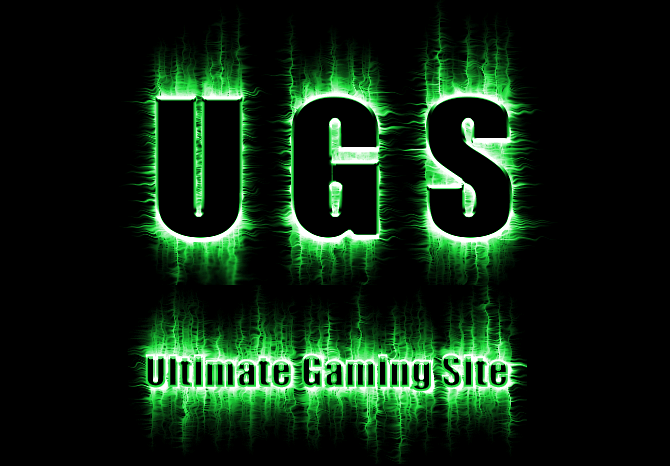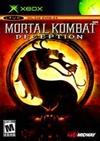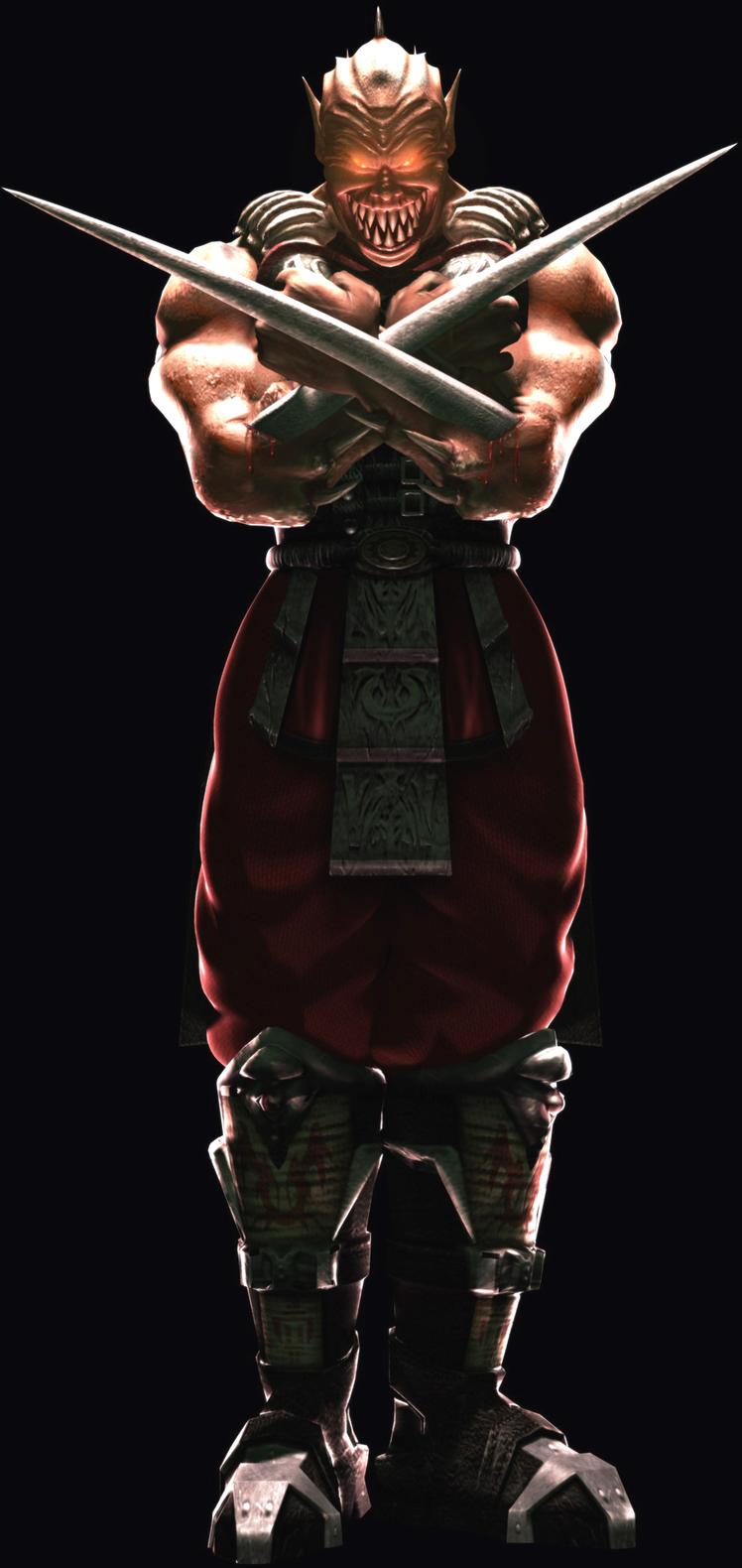


 The latest in Midway's influential and
long-running fighting game series, Mortal Kombat: Deception,
picks up where 2002's Mortal Kombat: Deadly Alliance left off
by featuring lots of new and returning fighters, a variety of
surprising new modes of play, and, perhaps best of all, the
ability to play online. The strangest part about Deception is
how it includes several completely off-the-wall modes, the
likes of which you'd never expect from a fighting game. These
include the single-player konquest mode, which is a
story-driven adventure; puzzle kombat, a competitive
Tetris-style puzzle game that's an unabashed homage to
Capcom's Super Puzzle Fighter II Turbo; and chess kombat,
which is inspired by the classic computer game Archon. The
konquest mode is disappointingly bland, while these other two
modes are at least amusing. However, the core one-on-one
fighting action--whether you play it offline or online--is
easily the best part of the game. Like its predecessor, the
fighting in Mortal Kombat: Deception is gory, intense, and
quite complex, meaning it captures much of what's made MK an
institution among fighting games.
The latest in Midway's influential and
long-running fighting game series, Mortal Kombat: Deception,
picks up where 2002's Mortal Kombat: Deadly Alliance left off
by featuring lots of new and returning fighters, a variety of
surprising new modes of play, and, perhaps best of all, the
ability to play online. The strangest part about Deception is
how it includes several completely off-the-wall modes, the
likes of which you'd never expect from a fighting game. These
include the single-player konquest mode, which is a
story-driven adventure; puzzle kombat, a competitive
Tetris-style puzzle game that's an unabashed homage to
Capcom's Super Puzzle Fighter II Turbo; and chess kombat,
which is inspired by the classic computer game Archon. The
konquest mode is disappointingly bland, while these other two
modes are at least amusing. However, the core one-on-one
fighting action--whether you play it offline or online--is
easily the best part of the game. Like its predecessor, the
fighting in Mortal Kombat: Deception is gory, intense, and
quite complex, meaning it captures much of what's made MK an
institution among fighting games.
The fighting system in Deception hasn't changed much from that of Deadly Alliance. Once again, the main twist that distinguishes this game from other 3D fighting games is that each character may freely switch between three different martial arts styles during battle--one of which is always a weapon-based style of some sort. Characters each possess a handful of unique special moves, as well as a bunch of different chain combos, some of which involve switching between different martial arts styles in midcombo. The sheer variety of different martial arts featured in MK: Deception is quite impressive, and the overall look and feel of the action is clearly inspired by kung fu movies--to good effect. Whereas many fighting games take their cues from anime and aim for action that looks more stylish than downright painful, MK: Deception goes for the hard-hitting staccato rhythms of Hong Kong action cinema and doesn't skimp on sheer graphic violence. The results don't always look perfectly fluid or natural--especially since many of the characters actually look rather stiff--but the fighting in MK: Deception nevertheless features a ton of painful-looking moves that cause the opponent on the receiving end to reel backwards, oftentimes gushing blood. The fighting action is ridiculously over-the-top, and, as a result, it's actually often quite funny.
A much more noticeable, and welcome, addition is in how most of the battle arenas in MK: Deception feature death traps that may instantly end a round, either for a satisfying finish or a surprise comeback. For example, Mortal Kombat's classic "pit" stage returns (and MKII's acid-filled "dead pool" level is in here too), but this time, you don't need to wait until the end of a match to knock your enemy onto the spikes below. Now, if you just get him or her near the edge of the elevated platform, you can uppercut the poor sap to certain death. Should you die in this fashion, you only lose the round and not the match, which is something that's inexplicable but makes obvious sense from a gameplay standpoint. It's a like a much messier version of Virtua Fighter's ring-outs.
 The standard fighting mode is playable versus the
computer or against another player. When you play against the
computer, you'll fight your way past a number of combatants
until you finally square off against a typically overpowered
Mortal Kombat boss. Each character has a fairly elaborate
ending, should you win the bout, so fans of the MK mythos
should enjoy the arcade mode if not for this reason, then
because the enemy artificial intelligence is actually pretty
fun to play against. It's susceptible to some tricks and
patterns, and at higher levels of difficulty it fights pretty
cheaply, but mostly it's a good way to practice your skills,
master some combos, and maybe see a fatality or hara-kiri
you've never seen before.
The standard fighting mode is playable versus the
computer or against another player. When you play against the
computer, you'll fight your way past a number of combatants
until you finally square off against a typically overpowered
Mortal Kombat boss. Each character has a fairly elaborate
ending, should you win the bout, so fans of the MK mythos
should enjoy the arcade mode if not for this reason, then
because the enemy artificial intelligence is actually pretty
fun to play against. It's susceptible to some tricks and
patterns, and at higher levels of difficulty it fights pretty
cheaply, but mostly it's a good way to practice your skills,
master some combos, and maybe see a fatality or hara-kiri
you've never seen before.
 Online play is a major attraction in MK:
Deception. You can play puzzle kombat or chess kombat online,
but the regular one-on-one fighting is where the real action
is. It's easy to get into a match, and we experienced
surprisingly smooth, lag-free gameplay in each of the
different online modes, which is impressive considering this
is the first-ever online-enabled 3D fighting game to hit
consoles. Furthermore, the game's very timing-intensive,
which would make lag not just noticeable but quite
detrimental. Interestingly, you have access to all of your
unlocked characters while playing online. Some of the game's
hidden characters seem noticeably stronger than average, so
the play balance--especially with the death trap-filled
environments--is a little suspect. On the other hand, it's
not like you're dropping quarters into a machine each time
you play. At any rate, like pretty much any fighting game,
MK: Deception is at its best when you're playing a similarly
skilled opponent. And the presence of online play means you
should be able to find ready and willing competition 'round
the clock. It's a huge deal and a major milestone for 3D
fighting games.
Online play is a major attraction in MK:
Deception. You can play puzzle kombat or chess kombat online,
but the regular one-on-one fighting is where the real action
is. It's easy to get into a match, and we experienced
surprisingly smooth, lag-free gameplay in each of the
different online modes, which is impressive considering this
is the first-ever online-enabled 3D fighting game to hit
consoles. Furthermore, the game's very timing-intensive,
which would make lag not just noticeable but quite
detrimental. Interestingly, you have access to all of your
unlocked characters while playing online. Some of the game's
hidden characters seem noticeably stronger than average, so
the play balance--especially with the death trap-filled
environments--is a little suspect. On the other hand, it's
not like you're dropping quarters into a machine each time
you play. At any rate, like pretty much any fighting game,
MK: Deception is at its best when you're playing a similarly
skilled opponent. And the presence of online play means you
should be able to find ready and willing competition 'round
the clock. It's a huge deal and a major milestone for 3D
fighting games.
MK: Deception is an outstanding, fully featured game. And it's one that's naturally best suited to series' fans--especially those who liked 2002's similar Deadly Alliance. It's these players who'll be most likely to appreciate the game's peculiar emphasis on story and unlockable extras. But make no mistake: The best, most fully developed part of Deception is its fighting system. Like any great fighting game, this one carefully strikes the balance of delivering fast-paced, visceral thrills and rewarding lots of practice and complex tactics. As such, any fighting game fan should be rightfully attracted by the prospect of Deception's online play, which works as advertised and truly does make a big difference, because it provides access to live competition all the time. Not all of Deception's modes and features are flat-out great, but the game's absolutely got it where it counts.
